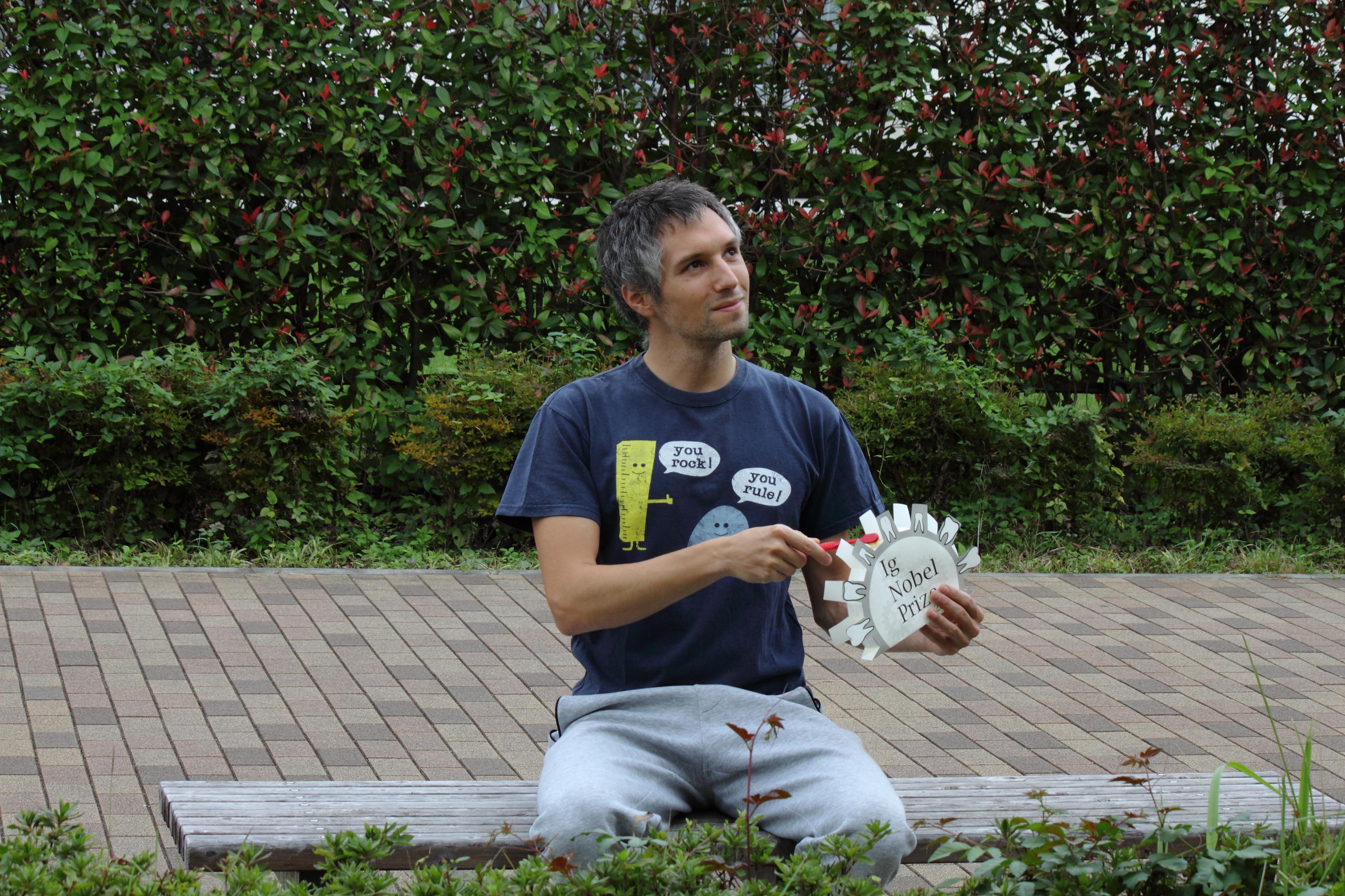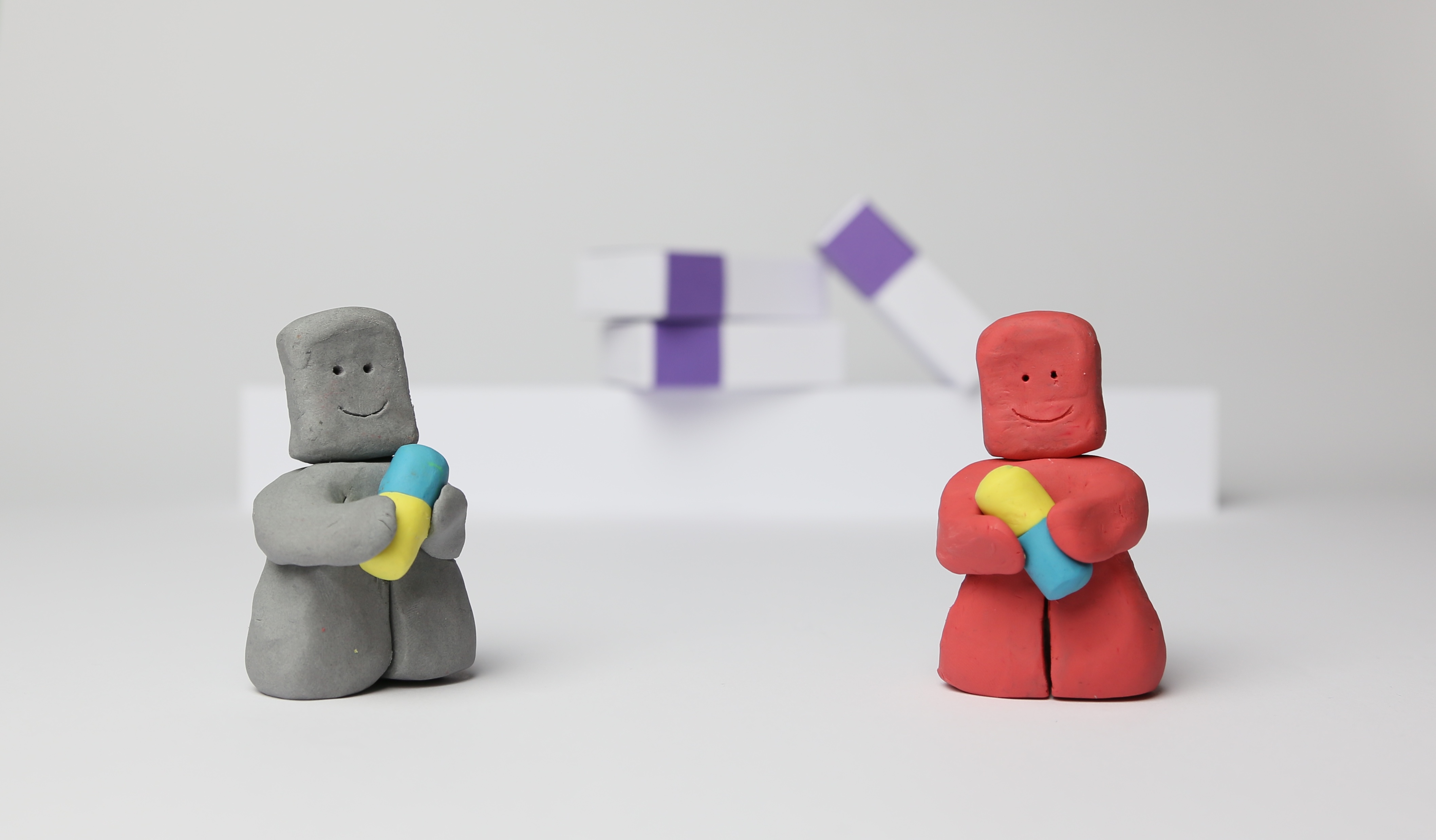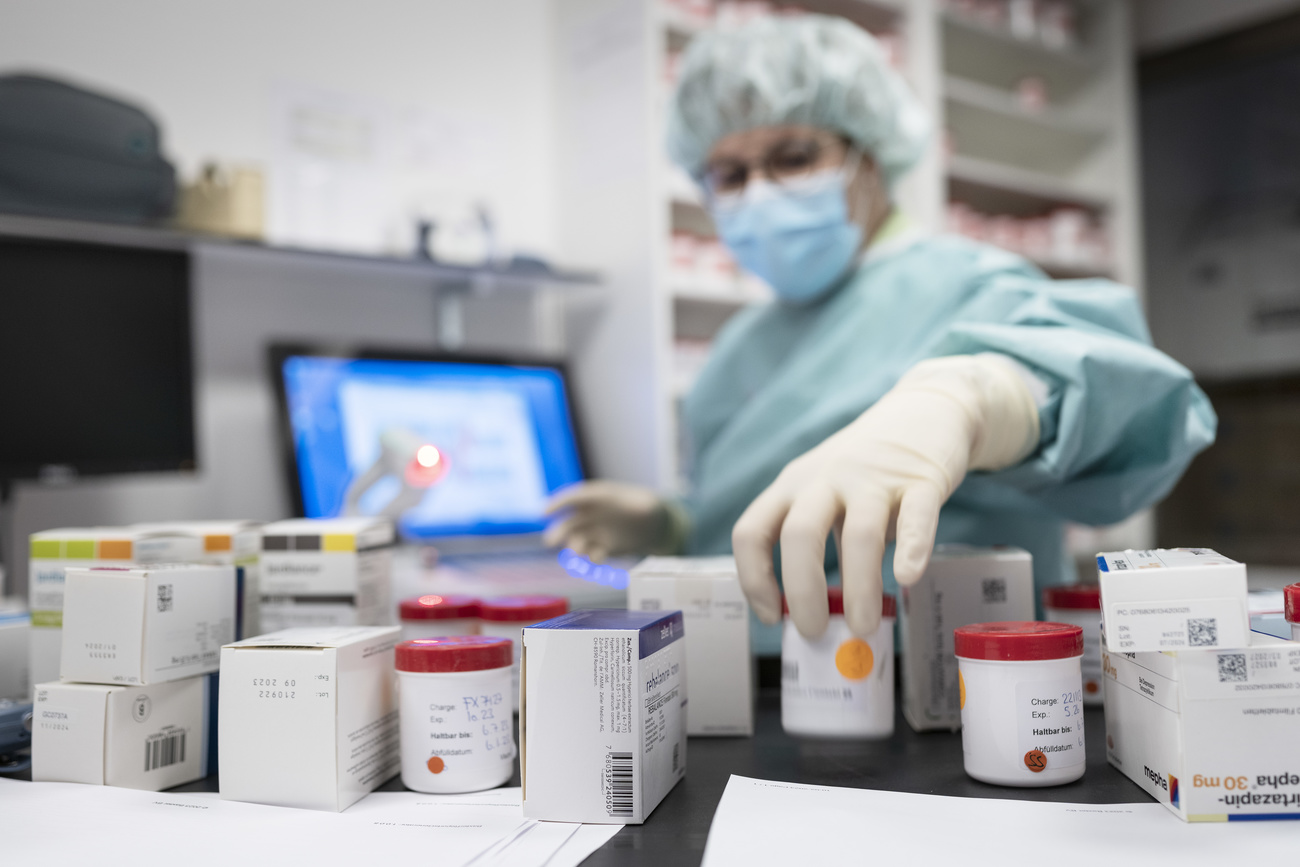A Swiss Ig Nobel laureate talks about side effects and placebo effects

Every year Ig Nobel prizes are handed out to unusual science that 'makes people laugh, then think'. The Swiss winner of the Ig Nobel 2024 for medicine talks to SWI swissinfo.ch about why his research is far from irrelevant.
Award-winning breakthroughs can come from the most unlikely directions: this year the 2024 prize for chemistry was given to the authors of Franco-Dutch research that used chromatography to separate drunk worms from sober worms. The physiology prize went to the Japanese-US study which found that many mammals are capable of breathing through their anus. And a US team that managed to show the swimming abilities of a dead trout won the physics prize.
Of course, we are not talking about the Nobel Prize, but the Ig Nobel, an annual celebration of the most “improbable” research from around the world – even the serious world of scientific research knows how to have a laugh now and then.
Although the list of winning research might sound phony, this is far from the case. The vast majority of Ig Nobel awards are won by respectable, peer-reviewed scientific papers. They are characterised, however, by the fact that they can make you smile. Or rather, as noted on the Improbable Research website: “they make you laugh… and then think”.

This is exactly the case for this year’s Ig Nobel Prize for Medicine, which was given to researchExternal link that “showed that fake medicines that cause painful side effects are more effective than fake medicines that do not cause painful side effects”.
The research was published by a team from the University Medical Center Hamburg-Eppendorf in Germany. Lieven A. Schenk, who is part of the team, is thus the latest Swiss to be honoured as an Ig Nobel laureate.
SWI swissinfon.ch talked to Schenk about the unlikely prize and the focus of his award-winning studyExternal link.
SWI swissinfo.ch: How did you and your colleagues react to the news that you had won the Ig Nobel prize? Was it a surprise?
Lieven A. Schenk: I was certainly very surprised. I didn’t think about it, and I didn’t expect it. It’s an award that doesn’t say anything about the quality of the research involved, although some of the work awarded in the past was very good, if not excellent – and influential.
I think we got the prize because we worked on a topic that is counterintuitive at first glance. But in the area of non-pharmacological effects, pain modulation, and placebo effect study, it is not.
But even my colleagues were surprised. I think in the past the Ig Nobel was rather a “joke” award, but it has been reformulated to now celebrate research that makes you first laugh and then think. Reactions in the team ranged from “hmm, I’m not convinced by this” to being really happy.
The Ig Nobel 2024 award ceremony was held on September 12. The theme of the event was “Murphy’s Law” (if something can go wrong, it will). However, as noted in the press release from Improbable Research, which presents the awards, the theme does not necessarily pertain to the work being honoured.
The first Ig Nobel awards ceremonies were held from 1991 to 1994 at the prestigious Massachusetts Institute of Technology (MIT) and then moved to Harvard University. After the forced hiatus of the pandemic that made the ceremonies exclusively virtual, this year marks a grand return live where it all began, at MIT.
SWI: Doesn’t winning an Ig Nobel bring visibility to research?
L.S: Yes, certainly. It’s definitely going to give some visibility to our research and that’s something I’m happy about because I think it’s a good and valid study which highlights an important aspect in clinical trials and clinical practice.
However, because it is a rather sarcastic award, there is always the concern that the scientific side is not taken seriously – some people might think it’s just a joke. But the visibility is there, and I hope people understand that the study is very relevant, even if the topic is counterintuitive.

More
Swiss scientist ‘delighted’ at Ig Nobel win for research on pedestrian habits
SWI: Can you briefly explain the content and results of your research?
L.S.: We wanted to investigate how a drug’s side-effects affect a patient’s expectations about treatment – expectations that, in turn, may impact pain perception. In other words, we wanted to understand the influence of side effects on the placebo effect and identify the underlying psychological and neural mechanisms.
What we did was to give some patients [who were convinced they were receiving an anesthetic via nasal spray] a placebo with no side effects and then another with the side effect [a slight burning sensation]. When subjected to experimental painful stimuli, patients showed less pain when they received the placebo with the side effect.
Through MRI, we also saw that this effect is probably mediated by the so-called descending pain modulation system, which is activated during placebo analgesia.
SWI: What implications might your research have?
L.S.: [To ascertain that the effects of a treatment are not due to the placebo effect] normally, during clinical trials, the drug to be tested is used on one group of patients, while others are given a placebo that usually has no side effect. Our study suggests that this could have a negative effect on the test results.
Both medical staff and patients do not know whether the drug is the real one or the placebo. However, doctors are well aware of what the side effects might be, and patients are also informed.
If these side effects occur, suddenly people understand that they are receiving or administering the real drug, which may cause the patient to experience a greater placebo effect. Conversely, the placebo effect is reduced when the side effects do not occur.
Our study shows that in these cases the placebo effect of the two groups may be so different that it is no longer possible to estimate the effectiveness of the treatment.
SWI: So should the practice change?
L.S.: I think that when you have to test a treatment that has very specific and very perceptible side effects, it would be a good idea to make sure that the placebo also causes them, so as to eliminate the differences in perception between the two groups.
There are certainly different ways to approach this problem. For now, our study merely highlights it.
More

In compliance with the JTI standards
More: SWI swissinfo.ch certified by the Journalism Trust Initiative












You can find an overview of ongoing debates with our journalists here . Please join us!
If you want to start a conversation about a topic raised in this article or want to report factual errors, email us at english@swissinfo.ch.